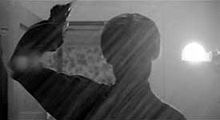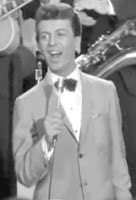My friend and companion of 12 years passed away on December 10th, 2013.
Emma was a friendly cat with a quiet temperament and a cute face that could send cat slaves, such as I, into unscheduled trips to the store to find some new and fascinating toy to keep the master happy.
With Emma, there was no arguing over money, or fighting over the remote but I must admit, whoever got to the lazy boy rocker first usually had the upper hand.
I always knew this day would come. What is existence but life, death and feeding the cat. Emma was relatively healthy throughout her life, but the last year saw a slow deterioration that was heart breaking to observe. Even then, her passing came suddenly and was truly difficult to accept. A person gets used to taking care of another living creature and for days now the shadow of her existence keeps sitting in my easy chair or jumping up on the bathroom vanity asking for a drink of fresh water.
Memories linger on with tears and blinking eyes.
There was something magical about bringing home a new kitten all those years ago, an experience comparable to bringing home that brand new car you've sacrificed and saved for just so you can appreciate that unique smell as you pull into your driveway.
I brought Emma home on a cold November night in 2001, a gift from my friend Kim who had rescued her from a Pet Store cage. We didn't know how old this little tabby cat was, probably five or six months, but she was lively enough and seemed to have a gentle temperament and she immediately charmed my pants off. Emma was the spit and image of my very first cat, Mickey, when I was a strapping five-year-old kid and so our bonding seemed to be almost immediate.
When we got home, I setup a few things Kim had provided me — Emma's litter box, water dish and so on. I tried to make Emma as comfortable as possible, but it was obvious she was having a bit of trouble getting oriented to her new surroundings.
There wasn't much I could do about that, but I hoped she'd survive the night and we could spend more time in the morning getting to know each other better.
When I got up the next morning, she was no where to be found. I checked everywhere -- under the bed and sofa, all throughout my office, in the bathtub ... even checked out the hallway of my apartment building until it dawned on me that no matter how strong she was, there ain't no way a little ball of fur was going to get that door opened. Duh!
I finally found her huddled in the dark recesses of one of the kitchen cupboards that had a broken door (one of the many repair projects I hadn't got around to), which gave her access to the back corner between an old frying pan and a bag of sponges.
With relief, I finally lured her out with a handful of kitty num-nums and we started the process of getting to know each other. Fortunately, that didn't take too long. There's something about being the hand that feeds them that will get a kitten's affection in no time at all.
I learned quickly that a kitten has a lot of energy and if you don't provide an outlet for it, they will find one of their own. She was quick to disc over a cork board I had leaning against my computer desk and before I knew it, she had claimed it for her own, turning it into a massive pile of rubble, cork droppings everywhere, until I had to hide it in the closet.
So I went out and bought her some expensive cat toys, some of which she liked, but many of which she lost interest in very quickly. I discovered that a lot of everyday articles were just as effective as expensive toys. A rolled up sheet of aluminum foil was just as much fun to knock around as those little fake mice that cost a couple of bucks each. Her favorite all time plaything turned out to be a big empty cardboard box filled with styro foam packing that I hadn't got around to throwing away after I got a new TV. She loved jumping into the box and dissecting bits of white foam into oblivion and the side of the box became as scarred as that poor cork board that I finally brought back out for her scratching pleasure.
As is the nature of cats, Emma spent lots of time licking her fur, which is nice because giving a cat a bath is not an experience any normal human being should ever have to live through. I did give her a good brushing from time to time, but since she's was an American Shorthaired tabby cat, there wasn't the constant requirement as would be the case with longhaired cats. She never had a major problem with hairballs, which is one thing to consider if you're trying to decide between a shorthaired or longhaired cat.
Another thing I decided early on was that Emma would eat when I ate. That way I wouldn't have her hanging around the dinner table while I ate since she'd be preoccupied with her own grub. This was an absolute rule and it worked out very well since she never, for the most part, bothered me for food before the appointed time.
Since my business was home-based back then, I usually knocked off working at the computer by 4:00 o'clock, did some reading for a half hour or so, had a quick cat nap and then by 5:00 o'clock it was time to get dinner for both of us. Sometimes, of course, Emma's timing was off by an hour or so. When that happened, she was relentless, but absolute rules are absolute rules, so I just kept on working.
On those days, usually around 3:00 or 3:30, she'd jump up and plop her butt directly on my keyboard or mouse and it was quite clear that she was on a mission. The thing is, it was a battle she never could win no matter how sweetly she rubbed her forehead against mine. I could work quite well with a top-heavy mouse, although typing got a bit ticklish at times since, as we all know, cats and mice don't usually get along very well. Slap a human hand in between the two and it can get a bit dicey.
 And like I said, at 3:45 I usually knocked off work and you know, one day I'd worked so hard, I just had to knock off work at 3:33 I was so, ah, hungry ... and one day the next week I planned a special 3:00 dinner at noon ... sigh.
And like I said, at 3:45 I usually knocked off work and you know, one day I'd worked so hard, I just had to knock off work at 3:33 I was so, ah, hungry ... and one day the next week I planned a special 3:00 dinner at noon ... sigh.And now Emma is gone. I'll miss her. I already do. Tears will eventually subside, but the memories will last forever. Good-bye old friend.




























































